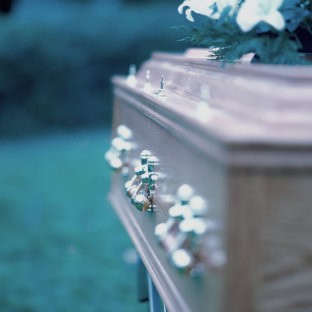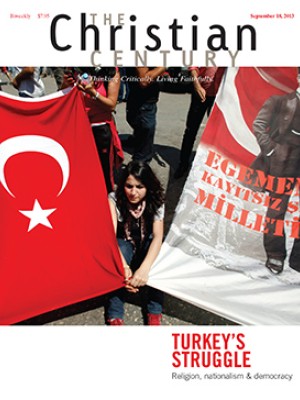Something for the coffin

In the Church of England, parish doesn’t refer to a congregation, a membership roll or a sphere of influence. It means a literal geographical area. The whole country is divided into historic parishes, which until the 19th century were coterminous with secular areas of administration. Every vicar or rector (the terms are largely interchangeable and equivalent) has a parish, and everyone who resides in the whole country has a vicar or rector whether he or she likes it or not. It is the duty and joy of a parish priest to conduct the funeral of anyone who resides in the parish if that person or a loved one so wishes.
And so it was that I was called to preside at the funeral of Michael. Michael had had a difficult life. He had Duchenne muscular dystrophy, a degenerative muscle condition that affects one in 3,500 boys. He spent a good deal of his life in a children’s hospice and was only 14 when he died. After receiving the funeral director’s call I went to visit Michael’s mother. She was young; I guessed that she must have had Michael when she was about 17. She had no other children, and there was no sign of Michael’s father or any other partner. She had been alone with Michael; she was even more alone without him.
Read our latest issue or browse back issues.
Like most funerals of people not closely connected with a church, Michael’s funeral took place in the crematorium chapel. There were touching mementos from other hospice children and from nurses and well-wishers. I was invited back to the house for the wake. Clergy tell themselves that they attend the wake for a sense of completion—the death or the service may evoke profound feelings that mourners might want to share with a priest while the rest of the company finishes off the Lambrusco. But the truth is that clergy attend these events to receive compliments about how pastoral and sensitive the funeral was and how well they “captured” the deceased even though they never knew him.
So I lingered and asked Michael’s mother what it was like to say goodbye. “Oh, it wasn’t much fun,” she said. “But d’you know what?” she added. “I slipped a packet of condoms in the coffin just before they closed it.” And she winked.
Was ever a parting gesture so laden with complexities of meaning? The young Tutankhamen, teenage pharaoh of the 14th century BC, was surrounded in his tomb by an array of golden artifacts. Michael was sent to the hereafter with a supply of prophylactics. This assumed something I’d never previously imagined: there must be unwanted pregnancies in heaven. I wondered how long this timely packet would keep Michael supplied. I wondered whether his mother had had it in the house or whether she’d gone out buy it for Michael, perhaps with a new necklace to wear to the funeral.
What did she believe she was giving him? If I’d asked her, I instinctively felt she’d have replied, “A bit of fun.” Has heaven come to this? What we used to depict as eternal bliss with wings and harp has been remixed as a quickie behind the bike sheds with a virtual stranger? The condom represented the adulthood Michael had never attained, the manhood he’d never inhabited. It was the antithesis of the constraints of wheelchair and nursing care and terminal decline. Perhaps it also represented an affirmation of his mother’s aspirations for her own life, recalibrated in the light of her newly restored social freedom. Meanwhile some heart-searching about whether she might have “been more careful” the night Michael was conceived may not have been too far below the surface.
Whatever the packet represented, it was a poignant symbol of care and abandon, restraint and permission, encouragement and playfulness, fertility and wistful regret. Michael’s mother had spent 14 years caring for his every bodily need: her final gift was a gesture toward the single bodily desire that remained out of his reach, the one that she couldn’t satisfy for him. It was a microcosm of what this life had not given him—and maybe the next life would.
Since that day I’ve changed the way I talk with grieving families about their loved ones. I ask if there’s something they want to put in the coffin. I wonder with them if there’s something their beloved had always longed for or something that remained out of reach. Is there a way the funeral can name and address what could never happen or the dream that could never be? I try in each funeral to include something visual, tangible, laden with unspoken meaning—a gesture, an artifact, a procession of gifts, a picture, a focus for prayer. Michael’s mother taught me that God makes heaven out of our faltering, foolish and fragile attempts to imagine and construct it. If clergy will not shape liturgy to incorporate people’s longings and regrets and desires, and transcend those deepest emotions with the passion of God in Christ, then people will simply go ahead and construct their own. Only if they’re very lucky will the clergy hear about those homemade liturgies. With a wink.







